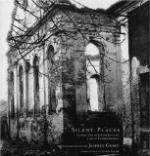Somewhere out beyond in those woods, at any one of the thirty-two points of the compass, a man was lurking. He might be five or five hundred miles away. He was an expert at taking care of himself in the woods. Abruptly Sam Bolton began to formulate his thoughts aloud.
“We got to keep him or anybody else from knowin’ we’s after him, Dick,” said he. “Jest as soon as he knows that, it’s just too easy for him to keep out of our way. Lucky Jingoss is an Ojibway, and his people are way off south. We can fool this crowd here easy enough; we’ll tell ’em we’re looking for new locations for winter posts. But she’s an awful big country.”
“Which way’ll we go first?” asked Dick, without, however, much interest in the reply. Whatever Sam decided was sure to be all right.
“It’s this way,” replied the latter. “He’s got to trade somewheres. He can’t come into any of the Posts here at the Bay. What’s the nearest? Why, Missinaibie, down in Lake Superior country. Probably he’s down in that country somewheres. We’ll start south.”
“That’s Ojibway country,” hazarded Dick at random.
“It’s Ojibway country, but Jingoss is a Georgian Bay Ojibway. Down near Missinaibie every Injun has his own hunting district, and they’re different from our Crees,—they stick pretty close to their district. Any strangers trying to hunt and trap there are going to get shot, sure pop. That makes me think that if Jingoss has gone south, and if he’s trading now at Missinaibie, and if he ain’t chummed up with some of them Ojibways to get permission to trap in their allotments, and if he ain’t pushed right on home to his own people or out west to Winnipeg country, then most likely we’ll find him somewheres about the region of th’ Kabinakagam.”
“So we’ll go up th’ Missinaibie River first,” surmised Dick.
“That’s how we’ll make a start,” assented Bolton.
As though this decision had terminated an interview, they turned with one accord toward the dim group of their companions. As they approached, they were acclaimed.
“Here he is,” “Dick, come here,” “Dick, sing us the song. Chante donc ‘Oncle Naid,’ Deeck.”
And Dick, leaning carelessly against the breech of the field-guns, in a rich, husky baritone crooned to the far north the soft syllables of the far south.
“Oh, there
was an old darkey, and his name was Uncle Ned,
And he lived long ago,
long ago!”
CHAPTER THREE
In the selection of paddles early next morning Sam insisted that the Indian rule be observed, measuring carefully that the length of each implement should just equal the height of its wielder. He chose the narrow maple blade, that it might not split when thrust against the bottom to check speed in a rapid. Further the blades were stained a brilliant orange.
Dick Herron had already picked one of a dozen birch-bark canoes laid away under the bridge over the dry coulee. He knew a good canoe as you would know a good horse. Fourteen feet it measured, of the heavy winter-cut of bark, and with a bottom all of one piece, without cracks or large knots.




